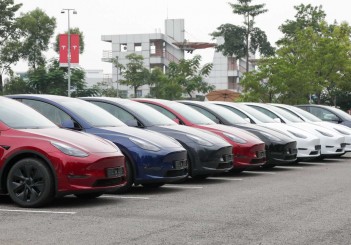And last week BMW took further steps to address urban transport issues with the opening of a dedicated new center.
Research and consultancy firm Frost and Sullivan describes P2P car sharing as "transformative." According to its latest data, published Wednesday, membership of P2P car-sharing services in North America and Europe are forecast to grow from 1.3 million to 9.8 million over the next 10 years.

"P2P car sharing has evolved into an opportunity to enhance economic sustainability and simultaneously produce benefits such as emission reduction, fuel savings and returns on investment," said Frost and Sullivan Automotive and Transportation Research Analyst Krishna Achuthan. "High online connectivity and smartphone penetration too have fast tracked the use of P2P carsharing."
According to research from the Greater London Authority conducted by King's College London, published this week, long-term exposure to PM2.5 particulates and nitrogen dioxide (NO2), pollutants associated with diesel engines and industry are responsible for as many as 9500 premature deaths in the English capital every year -- twice as many as previously thought. And as more people move to cities -- the UN forecasts 66percent of the world's population will be urban by 2050 -- congestion and pollution are also set to rise unless the population can reclaim their cities from cars.
Despite being somewhat responsible for the issue -- they build the cars, after all -- automakers are increasingly working on long-term projects to try to redress this balance, reduce dependence on cars and so help improve urban life quality.
This week, BMW officially opened its Centre of Urban Mobility Competence staffed by a team of multi-disciplinary experts whose job it will be to develop a roadmap for a sustainable concept for future urban mobility that can be managed without private cars, particularly within its native Germany. And one of its initial focuses will be on electric car sharing, raising its visibility and its popularity.
"It is not a contradiction in terms to improve mobility and at the same time ensure cities offer a high quality of life for the people who live there," said BMW vice-president for mobility services Dr Bernhard Blaettel.
"We are witnessing the changes our customers and society as a whole are making and we are taking them on board. Our aim is to work towards developing a higher quality of life in cities with ample space for urban living."
BMW believes that spaces currently used for car parking can be returned to the public. The demand for private cars and space to park them can be negated by a greater focus on public transport and frameworks that complement it, such as access to electric car-sharing schemes and services deployed via smartphones that interlink the different modes of transport for seamless movement in and out of urban areas.










